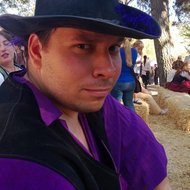A rogue, and a scallywag
Bradan is thinking of a positive integer. The integer is either 3 digits with the last two digits equal to 21, or the integer is 2 digits with the first digit equal to 2. How many different integers could Bradan be thinking of?

Details and assumptions
The number 1 2 = 0 1 2 is a 2-digit number, not a 3-digit number.
The answer is 19.
This section requires Javascript.
You are seeing this because something didn't load right. We suggest you, (a) try
refreshing the page, (b) enabling javascript if it is disabled on your browser and,
finally, (c)
loading the
non-javascript version of this page
. We're sorry about the hassle.
11 solutions
Oh dang it; I had that, separately, but didn't add it together.
infirst case in first position we can put 1 to 9 means nine ways and in second part we can use 0 to 9 means ten ways as there or so 10+9=19
damn, its so easy but I'm not understand english language very well.
An integer with the last two digits known and the first one unknown can have 9 possible first digits (and not 1 0 because 0 cannot be the first digit of a number. An integer with the first digit known and the last digit unknown can have 1 0 possible ending digits. 9 + 1 0 = 1 9 .
Three digit numbers having 21 as last two digits are 121,221,321,421,521,621,721,821,921 so these are 9 3-digit numbers bradan could be thinking of.2-digit no. having 2 as first digit are from 20 to 29 so these are 10 numbers.In total there are 9+10=19 numbers bradan could possibly think of.
Since the first two digits of the three digit number is fixed, there are only 9 possibilities from 1 to 9 as 0 is not applicable. for the two digit number, since it is the ones digit, there are ten possibilities from 0 to 9. In this case, 10+9=19
its simple for 3 digits = 9 1 1; because two last digit must 21 for 2 digits=10, (from 0 -9)
Clearly, if the number has 3 digits, there are 9 choices for the first digit, and the other two digits are fixed. If the number has two digits, the first digit is fixed, and there are 1 0 choices for the second digit.
Thus, there are a total of 9 + 1 0 = 1 9 integers Bradan could be thinking of.
So, we have the three-digit number, of which 2 digits are given to us, and the two-digit number, of which 1 digit is given to us. So, there is only one digit in each number that can change. We cannot use 0 as the missing digit for the first number. So our choices for those missing digits are immediately limited to 1, 2, 3, 4, 5, 6, 7, 8, and 9 for the first number, and 1, 2, 3, 4, 5, 6, 7, 8, 9, and 0 for the second number. Count all those and you get 19, which is the answer
Now first possibility goes like this : a21 is a three digit number.....so a must be an integer from 1 to 9....so there we have 9 possibilities.(a cannot be equal to 0 or else it would be a two digit number.) Then the second possibility is : 2b is a two digit number.... but here b must be an integer from 0 to 9.....so there are 10 possibilities. Hence total possibilities should be 10+9=19 possibilities.
There are 9 three-digit numbers ending with 21, and 10 two-digit numbers that has a tens digit of 2. 9+10=19. Therefore, the answer is 19.
Seja x 2 1 o número de três algarismos. Os possíveis valores que "x" pode assumir são: {1, 2, 3, ..., 8, 9}. Portanto, 9 possibilidades! Veja:
9 − 1 + 1 = 9
Já o número de dois dígitos é dado por 2 y , então, os possíveis algarismos de "y" são: {0, 1, 2,..., 8, 9}.
Por isso,
9 − 0 + 1 = 1 0
Segue que,
9 + 1 0 = 1 9
The 3 digit integer may be 121, 221, 321, 421, 521, 621, 721, 821, 921. And the number is 9
And the 2 digit integer may be 20, 21, 22, 23, 24, 25, 26, 27, 28, 29. Total 10 integer.
So, there are 1 0 + 9 = 1 9 different integer could Bradan be thinking of